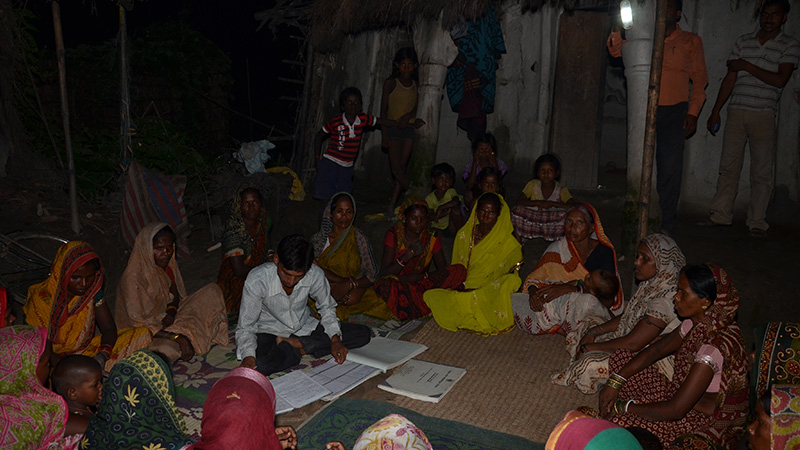Hope amidst floods and challenges – A story on IDES technology "Lighting a Billion Lives Program" of TERI from Bihar
In response to the demand for clean energy access in rural households, TERI, in collaboration with JEEViKA and J-WiRES, has implemented ‘Lighting a Billion Lives’ in Bihar. The programme proved to be a game-changer for rural households.
The initiative utilizes clean energy technologies to provide modern and clean lighting solutions to over 50,000 households across 10 districts (Purnia, Katihar, Kishanganj, Saharsa, Khagaria, Madhubani, Gaya, Aurangabad, Nawada, and Nalanda) of Bihar. Additionally, it addresses the energy needs of rural populations, thus ensuring lighting and cooking solutions through the Integrated Domestic Energy System (IDES). These efforts are geared towards rural development, poverty alleviation, and reducing indoor pollution, while also improving the quality of life for rural communities.
The program's IDES also promotes rural development, poverty alleviation, and environmental sustainability. In the face of natural disasters, such as the recent floods in four Bihar districts, this program has played a vital role in supporting affected communities. Several districts in Bihar, including Saharsa, faced a natural disaster in the form of severe flooding. The Kosi, Gandak, and Bagmati rivers breached their embankments, causing widespread damage to crops, infrastructure, and rural households. Heavy rainfall in Nepal contributed to the flooding, leaving several low-lying blocks submerged.
For instance, in Saharsha's three blocks (Nauhatta, Salkhua, and Maheshi), where 70% of the population was impacted, IDES ensured survival by providing lighting and cooking solutions during the week-long power outage. The IDES systems, which include solar lighting and clean cooking solutions, became lifelines for many households. The solar lighting enabled them to safely navigate during the nighttime and manage their daily activities, while the portable cook stoves allowed for food preparation in safe zones. With no access to electricity, the ability to charge phones became crucial for maintaining communication during the disaster, further demonstrating the system's significance in their survival.
This collaborative effort has transformed households, bringing positive change to families through clean cooking and lighting solutions. It has shown the importance of clean energy technology in both regular and emergency scenarios. By providing essential lighting and cooking solutions to flood-affected communities, the program has highlighted the critical role of sustainable energy solutions in disaster-prone areas. With a commitment to expanding its impactful work throughout Bihar, TERI, JEEViKA, and J-WiRES are making a lasting difference in the lives of rural communities.





